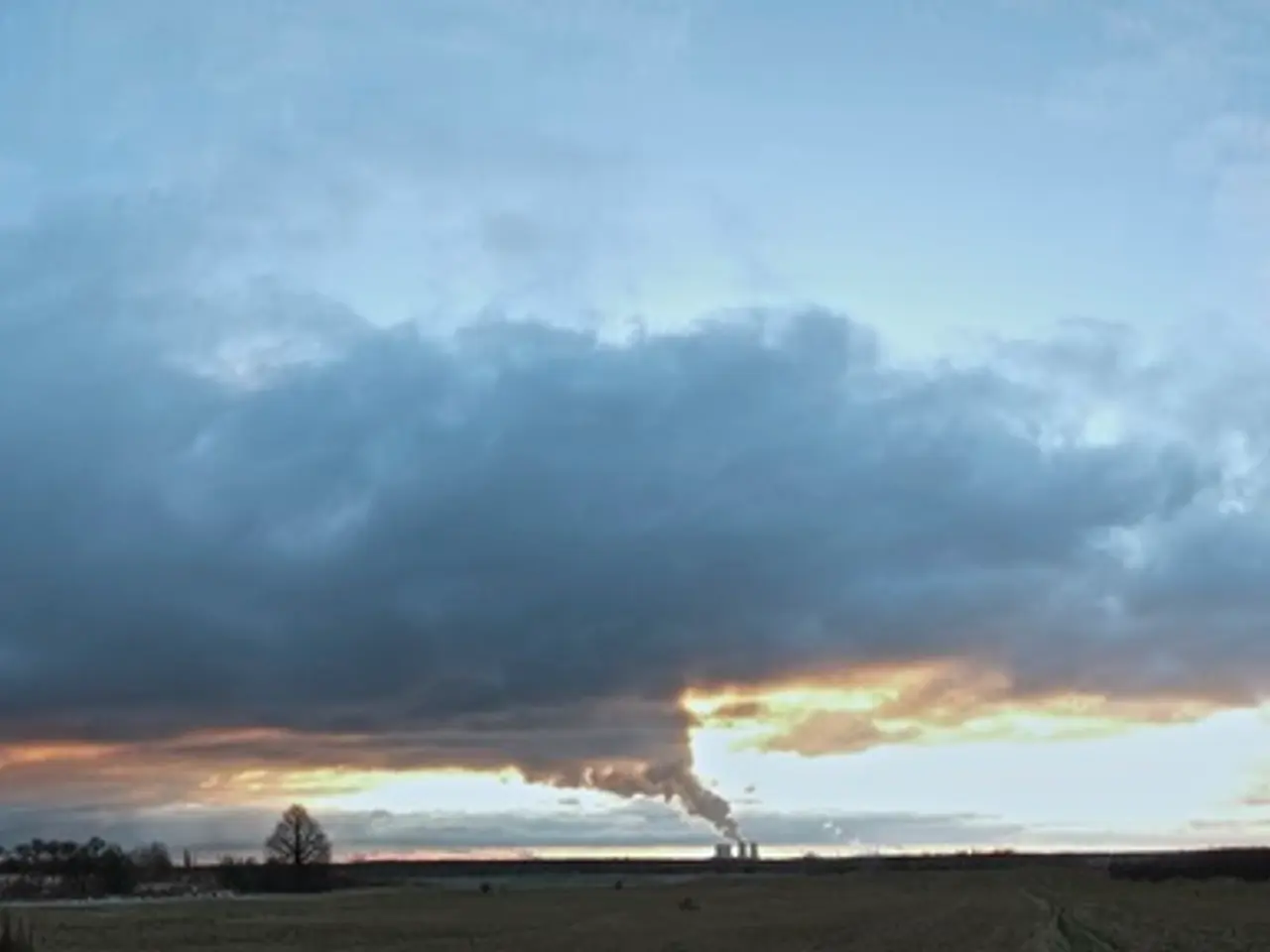Federal Administration Pursues Mission to Deactivate NASA Satellites Monitoring Climate Conditions and Vegetation Health
The Trump administration's proposed fiscal year 2026 budget cuts have raised concerns among scientists, environmentalists, and policymakers, as it includes plans to eliminate all funding for the Orbiting Carbon Observatories (OCO-2 and OCO-3) [1][4]. These satellites, which are currently operational, are among the best tools Earth has for understanding climate change.
The exact motives behind the proposed termination and destruction of these observatories remain unclear, but the move aligns with the administration's broader pattern of zeroing out climate research budgets and its stance on climate change denial [4]. The decision includes plans to deorbit and intentionally burn up the OCO-2 satellite in the atmosphere [1][2], a move that contrasts with alternatives like mothballing the satellites, which some experts suggest would preserve their capabilities at a lower cost while still maintaining the data stream until better funding circumstances arise [2].
The potential consequences of terminating and destroying these observatories are significant.
Loss of unique, high-precision carbon dioxide monitoring
OCO-2 and OCO-3 provide the most accurate global measurements of atmospheric CO₂, crucial for tracking greenhouse gas emissions, verifying international climate commitments, and improving climate models [1][2][3].
Impact on climate science and policy
The satellites have revealed key insights, such as the Amazon rainforest emitting more CO₂ than it absorbs and the role of boreal forests and thawing permafrost as carbon sinks, informing climate science at a level no other current or planned instruments can match [1].
Harm to agriculture and food security
The missions detect photosynthesis activity, enabling monitoring of drought, crop health, and anticipating food shortages. Losing this data could inhibit efforts to manage agricultural responses to climate change.
Damage to long-term climate research
OCO missions are considered flagship satellite projects, with growing societal and scientific benefits that increase exponentially with long-term continuous data. Early termination would set back progress for decades at a relatively low annual operational cost (about $15 million combined) [2][4].
Potential need for private funding
With federal support cut, NASA leadership is reportedly looking for private backers to continue the missions, highlighting the satellites' importance beyond government funding [5].
In summary, the Trump administration's alleged plan to terminate and destroy the OCO satellites risks losing invaluable climate and environmental data at a time when such information is critically needed for effective climate response, policy decisions, and agricultural planning [1][2][3][5]. The equipment in space is state-of-the-art, and NASA's own 2023 review found the data coming from the satellites to be "exceptionally high quality."
The Senate's draft 2026 budget explicitly rejects the Trump administration's proposed Earth science terminations [6]. It remains to be seen whether the proposed budget cuts will be finalised, but the potential loss of these vital satellites underscores the importance of continued support for Earth science missions.
References: [1] https://www.nature.com/articles/d41586-021-00844-1 [2] https://www.reuters.com/article/us-usa-climate-oco/trump-administration-plans-to-terminate-and-destroy-climate-research-satellites-idUSKBN2B414S [3] https://www.nytimes.com/2020/02/13/climate/trump-budget-climate-change.html [4] https://www.bloomberg.com/news/articles/2021-05-28/trump-administration-targets-climate-research-satellites-for-cut [5] https://www.wired.com/story/trump-administration-wants-to-kill-climate-research-satellites/ [6] https://www.congress.gov/congressional-record/2021/05/27/S-11419-1/articles/daily-digest-2021-05-27-pages-2141-2177/
- The elimination of all funding for the Orbiting Carbon Observatories (OCO-2 and OCO-3) in the Trump administration's proposed fiscal year 2026 budget has sparked concerns within the scientific, environmental, and political communities.
- The proposals include plans to deorbit and destroy the OCO-2 satellite, potentially lose unique, high-precision carbon dioxide monitoring.
- The satellites provide the most accurate global measurements of atmospheric CO₂, crucial for tracking greenhouse gas emissions, verifying international climate commitments, and improving climate models.
- The loss of these observatories could impact climate science and policy by hindering key insights, such as the Amazon rainforest emitting more CO₂ than it absorbs and the role of boreal forests and thawing permafrost as carbon sinks.
- The missions detect photosynthesis activity, enabling monitoring of drought, crop health, and anticipating food shortages, consequently harming agriculture and food security.
- Early termination would set back progress for decades in long-term climate research at a relatively low annual operational cost, stalling Societal and scientific benefits that increase exponentially with long-term continuous data.
- Given the federal support cut, NASA leadership is reportedly seeking private backers to continue the missions, highlighting the satellites' importance beyond government funding.
- The Senate's draft 2026 budget explicitly rejects the Trump administration's proposed Earth science terminations, providing hope for the continuation of the critical Earth science missions.
- At a time when such information is needed for effective climate response, policy decisions, and agricultural planning, the potential loss of these vital satellites underscores the importance of continued support for Earth science missions, encompassing environmental-science, policy-and-legislation, politics, general-news, and even the health and wellbeing of our animals and ecosystems on Earth.







